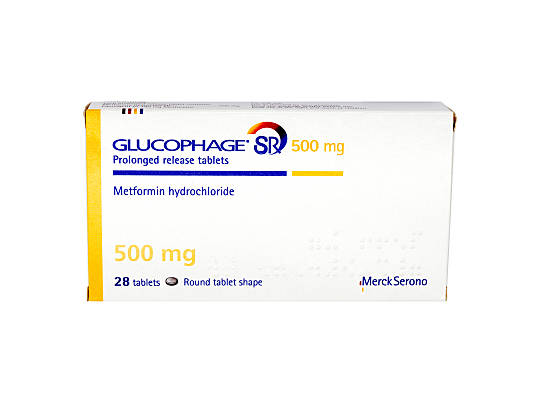Type 2 Diabetes Symptoms

Medically reviewed by
Dr Kathryn BasfordLast reviewed: 23 Mar 2019
Signs and symptoms of diabetes

Type 2 diabetes is the most common type of diabetes in adults. It’s a serious condition that can affect your everyday life.
In Type 2 diabetes, blood sugar levels are higher than they should be, because your body is either not producing enough insulin, or your body is not using the insulin as well as it should. Insulin is a hormone that works to control the blood sugar (glucose) levels in the body, so blood sugar levels start to rise.
Type 2 diabetes usually come on gradually and can take a long time to notice. This is because the symptoms of type 2 diabetes may not make people feel bad enough for them to decide to see a doctor.
Type 2 diabetes can cause serious health complications, especially if your sugar levels are not controlled. So, it’s important to spot the signs and symptoms of type 2 diabetes. Getting an early diagnosis of type 2 diabetes will lower the risk of serious long term health complications.
The signs and symptoms of type 2 diabetes
They can include:
- Feeling very tired
- Needing to pee a lot – particularly at night
- Feeling very thirsty
- Slow healing cuts and grazes
- Getting recurring infections like thrush
- Itching around the genital area
- Blurred vision
- Headaches
- Feeling hungry even after eating
- Dry mouth
- Losing weight without trying to
What to do if you think you’re having symptoms of diabetes for the first time
If you think you’re at risk of getting type 2 diabetes, or you think you’re having symptoms, you could get a blood test to check. A diabetes home test kit is and easy way to find out if you could type 2 diabetes. They can be bought online from ZAVA with free, fast delivery right to your door, or a post office for collection, and they come with prepaid envelopes for posting your sample to our lab.
Using a test kit is simple: once your test kit arrives, follow the instructions that come with your kit. Use the small pin-prick lancet device on your finger to collect some of your blood, before sending it to our partner lab to be tested. Then we’ll let you know the results within 2-3 days of your sample reaching the lab.
You can also consider a type 2 diabetes test if you’re in the early stages of pregnancy, or are planning a pregnancy.
You can also make an appointment with your GP to get a test or a diagnosis for type 2 diabetes.
If you order the test online and the results are not normal, then make an appointment to see your GP right away. If you do have type 2 diabetes, your GP will help you decide what to do next.
Depending on your results, your diabetes treatment can include:
- Diet and lifestyle changes: many people with type 2 diabetes don’t need medication, and they control their diabetes by eating well and exercising more. Whether you’re taking medication or not, you should always maintain a healthy lifestyle
- Taking medication: this could be tablets or insulin injections. A lot of people need to use medication long-term to control their type 2 diabetes. There are different medications to help control your sugar levels and prevent health problems
We offer metformin treatment at ZAVA. This is the most common tablet given for type 2 diabetes. It’s usually the first medication that a doctor will give you if a healthy diet and exercise haven’t been enough to get your blood sugar levels under control.
What are the signs that current treatment isn’t working?
Diabetes can worse over time, making it important to manage it well and to recognise when your treatment isn’t working.
You can check your sugar levels yourself by doing a finger-prick test. You can do this a number of times a day to help work out what to eat and how much medication to take. Not everyone with type 2 diabetes needs to check their levels like this. You will need to if you take certain diabetes medication.
Once you are diagnosed with type 2 diabetes, you’ll also need to arrange a blood test with your GP or diabetes nurse to check your sugar levels (HbA1c test). The HbA1c test measures your average sugar levels over the past couple of months. This test is done every three months until your levels are stable and then every six months afterwards.
If your HbA1c levels are getting higher, it’s a sign that your current treatment isn’t working and that your type 2 diabetes may be getting worse.
Other signs that your current treatment isn’t working include, the symptoms you had before starting treatment can come back, get worse, or start happening more often, or you can develop new symptoms. These can include:
- Blurred vision: see your GP immediately if you get this
- Pain, numbness, or tingling in your feet
- Hypoglycaemia (hypos): periods of low blood sugar which can cause sweating, rapid heartbeat, dizziness, and numbness of the lips, fingers, or toes
- Other medical conditions getting worse, like heart disease, blood pressure problems, or high cholesterol
- Repeat infections, like thrush
Speak to your doctor right away if you’re worried about symptoms, or your diabetes getting worse.
What your symptoms could be if they aren’t diabetes
Symptoms of type 2 diabetes in adults can be similar to other medical conditions, like:
- Hyperthyroidism: an overactive thyroid
- Metabolic syndrome: a medical term for a combination of diabetes, high blood pressure, and obesity
Your doctor will check your medical history and symptoms to see if you have other conditions. Your doctor can also arrange other blood tests to check for certain conditions, like high thyroid levels. Or you can order a home thyroid test kit from ZAVA.
Health complications that you might notice after a long period of uncontrolled diabetes
Type 2 diabetes can cause long-term health conditions if it’s not managed well over a long period of time. Over time, high sugar levels can cause damage to small and large blood vessels. Damaged blood vessels don’t deliver blood as well as they should, which leads to other problems, specifically with the eyes, kidneys, and nerves, including:
- Eyes: cataracts and/or damage to the retina of the eyes (retinopathy). Both can cause blindness
- Kidneys: poor kidney function, which can require dialysis, or a kidney transplant in severe cases
- Nerves: pain, weakness, or tingling in the hands or feet. Foot sores that are not treated can cause serious infections
- Heart and brain: high sugar levels can affect larger blood vessels in the body causing blockages, which can cause heart attacks or strokes

from £19.99

from £24.99

from £34.99

No results found.
Please check your spelling or try another treatment name.

Dr Kathryn Basford is a qualified GP who works as a GP in London, as well as with ZAVA. She graduated from the University of Manchester and completed her GP training through Whipps Cross Hospital in London.
Meet our doctorsLast reviewed: 23 Mar 2019
-
Diabetes.org. Guide to diabetes. [online] Available at: https://www.diabetes.org.uk/guide-to-diabetes [accessed 9th March 2019].
-
NHS (2017). What is type 2 diabetes? [online] Available at: https://www.nhs.uk/conditions/type-2-diabetes/symptoms/ [accessed 9th March 2019].
-
NHS (2016). Metabolic syndrome. [online] Available at: https://www.nhs.uk/conditions/metabolic-syndrome/ [accessed 9th March 2019].








